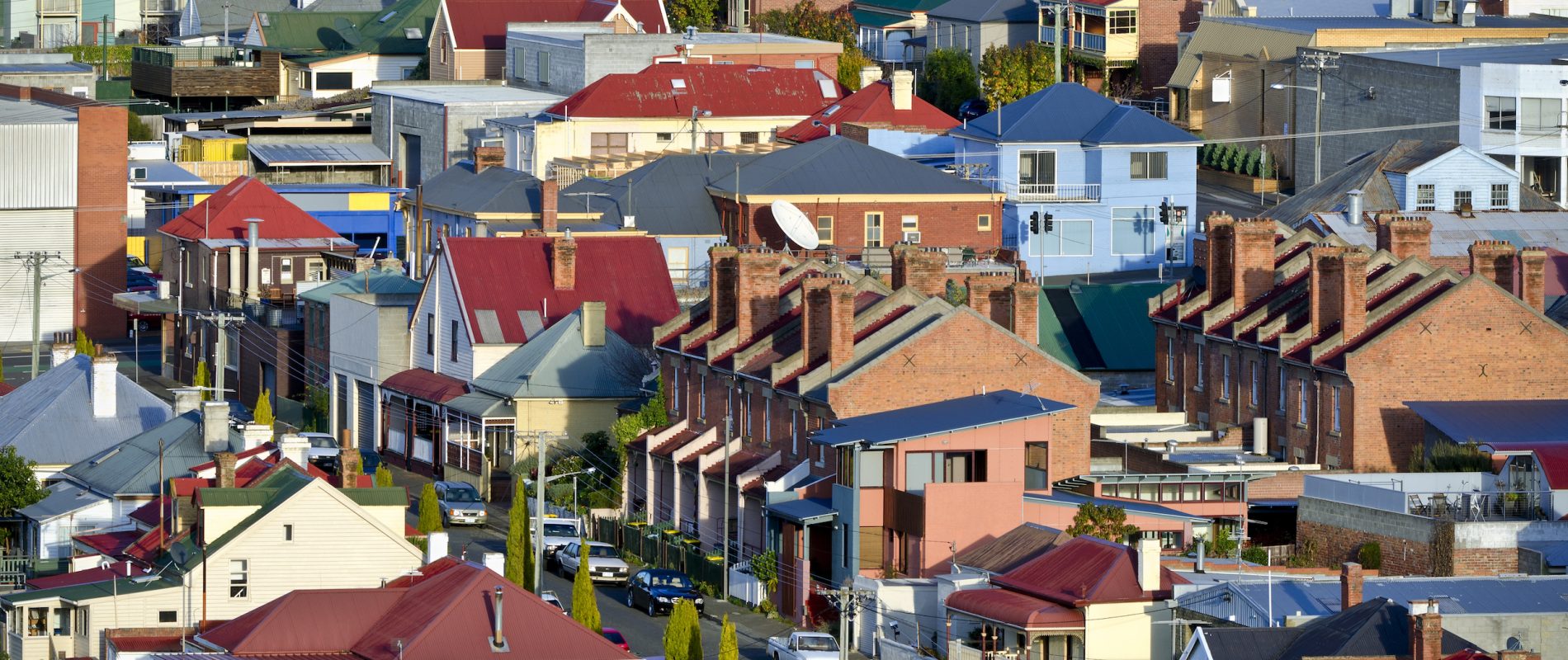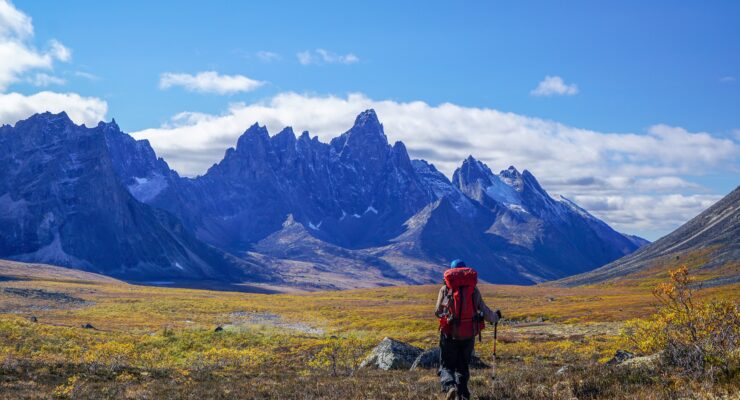Table of contents
The typical hostel experience
Hostels are often a cheap and practical option for travellers—they are everywhere in Australia and generally very central or ideally located, so you can explore the city easily.
Hostels usually have several rooms (dorms) packed with bunk beds—you’ll find anywhere from 4-bed to 20-bed dorms. The more beds, the cheaper the dorm is (… and the noisier it is!). Dorms come in two versions—mixed or same sex. There may also be private rooms with either private or shared bathrooms.
But… what about your stuff? Won’t it get stolen? Generally, everyone is in the same boat and the honour system applies. Obviously, you need to be sensible. If a safe or a locker is available, you should use it for your valuables. Don’t leave important belongings (e.g. passport, wallet, camera, etc.) out in the open; keep them on your person. Bring a lock with you, it’s going to come in handy!
Hostels usually have a shared kitchen—clean up after yourself and label all your food, otherwise someone else could use it or throw it away! Learn how to cook a few easy meals before you leave home—pasta, stir fry, curry, etc.—to save money and eat healthy while travelling.
If you want to meet other solo travellers, experienced backpackers, and fresh-off-the-plane WHV holders, hostels are the place to be. You’re likely to get first-hand travel or job-hunting advice, and you may even find future travel companions.
Never stayed in a hostel before? No biggie, we guarantee you won’t be the only first-timer there! Just go with the flow, follow the rules, and ask the staff or your dorm-mates if you have a hostel etiquette question.
With experience, you’ll learn to recognise the different kinds of hostels—party hostels, giant chains, smaller family-run places with just a few rooms, etc. Hostels are usually listed in travel guides, or you can book your bed online on websites like Booking.com or Hostelworld. Hostelworld also has a chat function where you can message other people staying in your hostel ahead of your trip; combat the nerves by having new friends waiting for you when you arrive!
Hostel prices in Australia
It depends on the location, the number of beds, types of amenities, etc. Generally speaking, expect to pay a lot more to stay in central locations, smaller dorms, or luxury hostels with plenty of amenities (pool, bar, en-suites, co-working spaces, excursions offered, etc.).
Prices also vary depending on where in Australia you are. Expect to pay two or three times more on the nightly/weekly price to stay in a big city like Sydney or Melbourne, versus smaller cities like Cairns or Perth.
Hostels usually offer a slightly cheaper weekly price than if you only stay for a few days. Ask the hostel directly if a discount is offered for longer stays.
Note that Wi-Fi isn’t always free, although you may get a few complimentary hours or megabytes. Check before booking.
Want a free bed? Some hostels may let you stay for free if you help out for a few hours a day. Typical tasks include front desk service or dorm/kitchen clean up.
The dark side of hostel life
No, nothing as bad as the horror film Hostel. However, living with dozens of strangers isn’t always easy:
- It does feel weird to sleep in the same room as a bunch of strangers, especially at first. Some people are very quiet, tidy and respectful, but not everyone. Different cultures also see privacy differently—some travellers are okay with getting dressed when others are around, while some will lock themselves in the bathroom. Tip: introduce yourself and try to get to know your dorm mates, so that they won’t feel like complete strangers!
- You’ll see plenty of “clean up after yourself!” signs in hostels—hopefully everyone co-operates, but the shared kitchen and bathrooms can be a bit of a mess. Tip: bring flip-flops (remember these are “thongs” in Australia!) to wear indoors.
- The more beds in a room, the noisier it can get. Between that guy who snores loudly, the girls who are packing at 5 a.m. for an early flight, and the new friends who stumble in drunk at 3 a.m., you can experience some sleepless nights. Tip: bring earplugs and an eye mask (there will always be someone in a shared dorm who wants the light on at an ungodly hour!).
- Two scary words—bed bugs. These small, brownish insects are about the size of an apple seed, and come out at night to bite and feed on human blood. Infestations can be a real issue in hostels, where people come and go all the time and may be carrying them without knowing it. This is why hostels generally provide bedsheets and pillow cases and won’t let you use your own sleeping bag. Tip: bring your own towel, otherwise you will have to rent one. Also, check for bed bugs before unpacking or sitting on the furniture.
The three main Australian hostel networks
There are plenty of independently run hostels, but you’ll also likely encounter hostels affiliated with the following networks:
- YHA (Youth Hostel Association): This is Australia’s largest network of budget accommodations. YHA Australia is a membership-based, not for profit association, associated with well-known brand Hostelling International. Joining is easy, as you will automatically be given a membership when you check in for the first time. Your membership unlocks plenty of discounts. All YHA hostels have a shared kitchen, self-service washing machines and, occasionally, a swimming pool or assistance with booking travel excursions.
- Nomads: You can find their locations here.
- Base: You can find their locations here.
Base and Nomads share a lot of similarities. Affiliated hostels for both are located in the top East Coast destinations, between Magnetic Island and Melbourne. They both offer work and travel packages that include assistance with CV writing and access to job boards.
Base also offer a multi-night flexible accommodation pass, the Bed Hopper. You can buy up to 60 nights of accommodation in hostels affiliated with their network for around $2,500. You can use this in New Zealand and Thailand as well as at their Australian locations; you may want to consider this deal if you’re planning to backpack across multiple countries.
Working hostels
Working hostels look like hostels and offer the classic experience—dorms, a shared kitchen, etc. However, they are usually located in towns or in rural areas, close to farms, and they help backpackers looking for work.
Here’s the deal: you sign up to stay at the hostel while you work, and the hostel helps you find a job (usually farm work). Transport to the work site can also be arranged, for a fee. The hostel owner puts you in touch with either a local farmer or a contractor (a middleman between the farmer and agricultural workers) and, in theory, it’s a win-win situation where demand meets supply.
There can be issues with working hostels:
- In the hotspots for specified work (e.g. Mildura, Bundaberg, etc.), you can only find a job if you stay in a working hostel, but there will be lots of competition for a spot. No farmer will hire you directly, so you will be forced to try and get a place in the working hostel.
- Despite the “help wanted!” ad, you may have to stay in the hostels for weeks before getting a job.
- Contractors can offer very low wages and you won’t have much left after paying for your bed and food.
It’s best to contact farmers directly and try to avoid relying on working hostels. However, if you do want to try the working hostel experience, follow these tips to avoid tricky situations:
- Watch out for the “fake job scam”! Don’t send money for a deposit to “secure a great job opportunity.” Many backpackers have been scammed after spotting an ad on websites like Gumtree. This is how the scam works: to get the job, you must send a deposit to secure your bed in a working hostel. But once you get there, the hostel doesn’t exist, or the owners have never posted an ad on Gumtree… and the scammer is spending your deposit. Read “Backpackers, beware of this scam” for more info.
- Check current, local work opportunities and pay attention to the harvest dates. Avoid spending weeks in a working hostel waiting for the fruit-picking season to start, or arriving too late once it has ended.
- Don’t forget to read reviews on the working hostel. It’s a good way to spot scams or terrible work opportunities.
- Chat with other backpackers to find recommendations for legit work opportunities and working hostels. Recent, first-hand experience is vital! Then, share your own experience and tips to help out other backpackers.
Can I live in a hostel for several months?
It’s certainly been done before! Whether it’s a working or regular hostel, it’s not unheard of to see travellers staying there for a while.
If being around strangers coming and going doesn’t bother you, there’s no maximum-stay rule! Tip: try to find a hostel that offers you a free bed for part-time work. You will get to stay rent-free, at least until you find full-time paid work.
















 Français
Français English
English




0 comments
{{like.username}}
Loading...
Load more